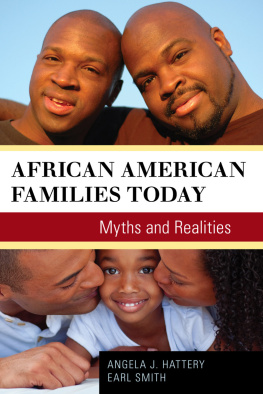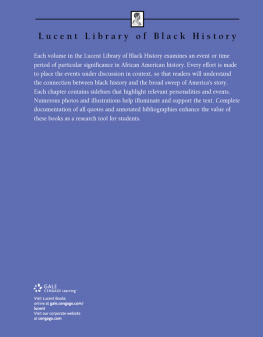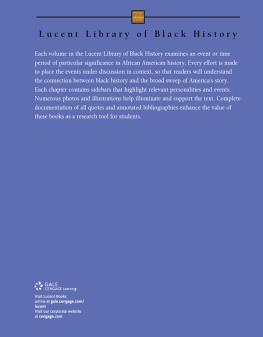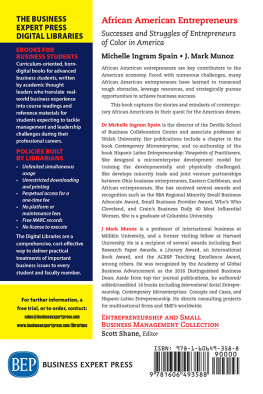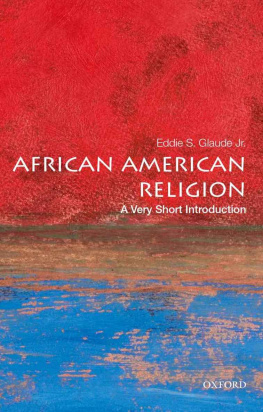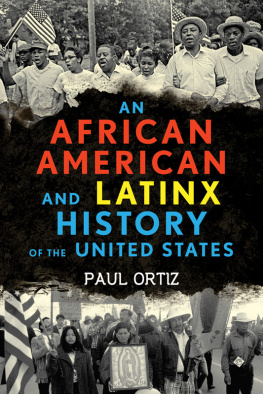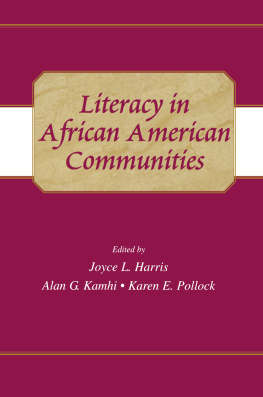The Quanders
Since 1684, an Enduring African American Legacy
Rohulamin Quander
Copyright 2021 by Rohulamin Quander
All rights reserved. No part of this publication may be reproduced, distributed, or transmitted in any form or by any means, including photocopying, recording, or other electronic or mechanical methods without the prior written permission of the publisher. For permission requests, solicit the publisher via the address below.
Christian Faith Publishing, Inc.
832 Park Avenue
Meadville, PA 16335
www.christianfaithpublishing.com
Printed in the United States of America
Table of Contents
In Praise of The Quander Story

F ew families, other than Native Americans, can show detailed evidence of an American heritage that spans well over three centuries. Even fewer can identify foreparents whose lives intersect with George Washington, the first president of the United States, and Francis Scott Key, the lawyer who penned the inspiring verses of the National Anthem. In Rohulamin Quanders remarkable narrativemade even more remarkable by being an African American storysuch historical evidence appears as early as the 1670s in the Catholic-founded colony of Maryland. Acquiring freedom from slavery by their masters will in 1684, Henry and Margrett Quando began the record of the Quander familys long journey and its repetition of names, sustained religious faith, and commitment to equal justice and personal achievement throughout the many generations. The books exhaustive documentation and compilation of court cases, state archives, probate records such as the will of George Washington, census data, street names, newspaper articles, and historic sites bring to life the Quander men and women and their experiences in Maryland, Virginia, and Washington, D.C. from the seventeenth to the twenty-first century. The Quander Story thus represents many stories of kinship that chronicle the ties that bind and sometimes fray, but ultimately unite in a shared memory, recurrent family reunions, and the eventual discovery of the familys African ancestral roots in the Amaquandoh family of Accra, Ghana.
Evelyn Brooks Higginbotham
Victor S. Thomas Professor of History and of African and African American Studies,
Harvard University
National President, The Association for the Study of African American Life and History
Acknowledgments
M y dear wife, Carmen, who always believes in and encourages me to go forward and aim higher. She is my shining star.
To my adult childrenIliana, Rohulamin II, and Fatimathey always make me look good in all that I do.
To James W. Quander and Joheora Rohualamin Quander, my loving parents, always dedicated and focused upon instilling Christian values and a moral standing into me and my siblings.
All Amkwandoh (Amaquandoh) ancestors in Ghana, whoin their suffering and sustained indignitycreated the foundation upon which this story, an American history story, is built.
All my Quando/Quander ancestors, who were involuntarily brought to this land then enslaved only in body but never in their minds. I give you my highest praise.
All my Quander ancestors, whether born free or enslaved as of January 1, 1863, I thank you. Your presence and contributors made this history. Without you, there would be no story to share and tell.
Gladys Quander Tancil, storyteller, sustainer, overlay of this product, always with some new information, and likewise encouraging me to move forward and share The Quander Story .
And Elaine Eldridge, my editor, my wordsmith, she guided me in telling the story without losing any of the essence of the history. She really helped me to make it happen.
T he Quander Story and all that it represents in memoriam to George Floyd (May 25, 2020) a soul brother who died too soon at the hands of the sustained racism and indignities that, since 1619, continue to daily characterize African American lives. Indeed, we cant breathe! George never intended to be a hero nor did he ever plan to be a martyr. But his life and the manner and circumstances of his untimely death underscore to all of us how fleetingly insignificant a Black life in the United States can be. In dyinga lynching if you willhe unleashed the hurt, both physically and psychologically, that has been pent up in the African American community for 401 years. The outpouring of recent events, generously embraced by our Caucasian brothers and sisters, have indeed underscored that Black lives do matter .
The Quander Story to John Edward (18831950) and Maude Pearson Quander (18801962), my loving grandparents. Their love of family and determination to save my father James W. Quanders life, as a child diabetic, is without equal. Through them and my dad, The Quander Story lives and has been preserved. Thank you.
Introduction
A s you turn these pages, place yourself into the atmosphere in which the African Americanfocused stories or occasions unfold. See yourself in the struggle facing and overcoming obstacles, many of which were racially motivated. As you progress from decade to decade and century to century, also grasp the sense of place, the disappointments, but still the triumphs of the people whose stories are told here. The refusal to be beaten! Only then can you fully appreciate how some of the ancestors achievements, while seeming insignificant by application of twenty-first-century standards, were milestones at the time. From personal enslavement to freedom in a single life or perhaps only one generation beyond, there was an unquenchable thirst to achieve. Whether by formal education, operating a business, or acquiring land to farm, these men and women were determined to do better, to do more, and to prove themselves to themselves.
What you are about to read, The Quander Story , is but one example of American history. Whether it be African American, European American, or otherwise, it ismore than anything elsean American story. Regretfully, our nation continues to experience racial attitudes and divisions that drive us apart and reject our shared stories. The murder of George Floyd in Minneapolis on May 25, 2020, unsheathed a two-edged sword. One sharp edgeI cant breathe!underscores the continuing frustration, suffering, hurt, and anger African Americans have sustained since 1619, when the first enslaved and chained ancestors were involuntarily transported from Africa to Virginia. Yet the other sharp edge has cut an opening through which much long-standing apathy has been exposed, cutting away the lack of awareness, concern, and understanding of what African Americans (the other side) have endured for centuries.
America is changing as people of all races and especially a large contingent of American Whites have stepped forward, joined arms with their black, brown, and yellow brothers and sisters, and cried, Enough already!
Is this the beginning of a new America? I certainly hope so. And the new America cannot come a moment too soon! African Americans built this country despite the initial denial of the appellation American as a component of our identity. Our uncompensated labor from sunrise to sunset built the U.S. Capitol, the White House, George Washingtons Mount Vernon, other presidential plantation estate mansions, and the Smithsonian Castle and even initiated the pre-Civil War construction of the Washington Monument. The enslaved constructed the streets in Washington, DC, upon which the enslavers rode in their well-appointed carriages to sites where they enjoyed the various attractions and accumulated riches. What thought was given to the enslaved Africans who labored to create these comforts? Little to none! This book, although it cannot tell all their stories or make up for that lack of thought, is my contribution to telling the story of American history.


